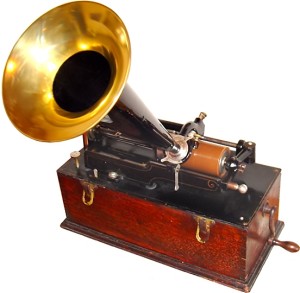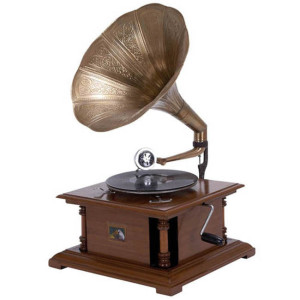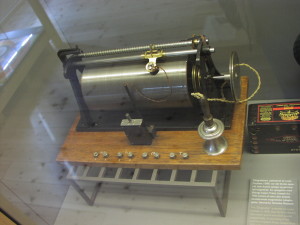Just like real people, we have our favorite fictional people. Characters that resonate with us, just like real people do.
So I thought I’d share with you ten of my favorite fictional characters that are not of my own creation.
Nero Wolfe and Archie Goodwin
I was introduced to Rex Stout’s detective team in the summer of 1980. I fell in love with Wolfe and Archie immediately. There are few books that I reread. The Nero Wolfe and Archie Goodwin mysteries are among those that I do.
My own Justinia and Harry Wright mysteries were inspired by Stout’s characters.
Wolfe and Archie are the timeless dynamic duo.
DCI Tom Barnaby and DS Gavin Troy
Like Wolfe and Goodwin, what makes DCI Tom Barnaby and DS Gavin Troy of Midsomer Murders exceptional is the relationship and repartee between the two.
There are certain pairings that just work. The chemistry between the characters makes us laugh or cry. We see them as real. And that’s how it is with Barnaby and Troy. They are real.
Alan Snyder (TV series Colony)
In my opinion, Alan Snyder is the consummate “bad guy”. And it is not so much that he is bad, as that he is completely and totally focused on promoting Alan Snyder.
He does some good things. He does a lot of bad things. But mostly he does what will benefit himself. Regardless of the outcome for others.
If you haven’t seen Colony, give it a watch. The show only lasted three seasons. But I think it is a great SF alien apocalypse story. Unfortunately, the acting is only so-so, save for Snyder’s character. But the show is totally worth watching. A fabulous story and a great bad guy.
Solomon Kane
Robert E Howard’s 16th and 17th century. Puritan adventurer is a masterful creation.
Kane is a Christian Puritan, but isn’t overly religious. Although he does have his own very strong moral code.
He is a wanderer. He is the consummate knight errant.
In many ways, he combines the action of Conan with the introspection of Kull.
And although Conan is far more popular, I think Solomon Kane is the superior character.
Sherlock Holmes and Dr John Watson
Holmes and Watson. I first met them sometime during my elementary school years. Sixty or more years ago. And I still find the duo interesting enough to make my favorite list.
The inimitable Holmes and the faithful Watson. Their world is a man’s world. So much so, that every modern re-creation infuses women into the story and gives them a place that Holmes and Watson would never have wanted. They were two men very much at ease with each other. Comrades. And in my opinion, that’s what makes the stories work and makes them so memorable.
Rona (Church Mouse)
RH Hale’s Church Mouse is a towering modern gothic novel of incredible power.
It is the story of Rona, who becomes a servant to vampires.
In some ways, Church Mouse is one long character study. But what an exciting and terrifying study it is.
If you haven’t read Church Mouse, you really need to do so. Even if you don’t like vampires, you’ll love Rona.
Church Mouse on Amazon.
Peter (Don’t Dream It’s Over)
Matthew Cormack’s Don’t Dream It’s Over is one of the great novels you’ve probably never heard of. Like Church Mouse above.
Also like Church Mouse, Don’t Dream It’s Over is a very long and fascinating character study.
The world as we know it has come to an end. But Peter survived. From his pen we learn what the new world is like. What hopes and dreams remain. And we learn about Peter himself. He is the unlikely hero. The person all of us would like to be.
Even if you don’t like post-apocalyptic novels, you have to read Don’t Dream It’s Over. It truly is a great novel.
Don’t Dream It’s Over on Amazon.
Doc Bannister and Eudora Durant
Caleb Pirtle’s series The Boomtown Saga is a magnificent historical novel series. It is literary mystery at its finest.
The books revolve around the intertwining stories of con-artist Doc Bannister and widow Eudora Durant.
These are two of the finest characters I’ve ever met. They are real people who come alive when you open the book. So real in fact, that I may have fallen in love with Eudora.
The Boomtown Saga will transport you back in time and introduce you to two of the most intriguing people you will ever meet. Real or otherwise.
The Boomtown Saga on Amazon.
Philip Marlowe
I came to Raymond Chandler’s fiction late in life. And I’m glad I did. I’m able to much better appreciate his picturesque prose, Chandlerisms, and the introspection and observations of PI Philip Marlowe.
In many ways, Marlowe is larger than life. And that is okay. It’s his keen observations about life, his feelings for or against people, that make him such an intriguing character.
Dracula
Almost all contemporary vampires are actually spinoffs of the silent film Nosferatu. And when compared to Stoker’s Dracula are very limited creatures.
Bram Stoker’s vampire is a creature of immense paranormal power.
He can walk about in daylight, although his power is diminished.
He can shapeshift to a variety of creatures and can even assume the shape of fog.
He can change his appearance.
His power of mental telepathy and control of people from afar is phenomenal.
His strength is supernatural.
Dracula is a predator of almost unlimited power and abilities and that makes him a true force to be reckoned with.
He is the perfect bad guy because he’s almost indestructible.
And maybe that’s why modern film, TV, and fiction opt to cast their vampires in the form of Nosferatu instead of Stoker’s Dracula.
Dracula, though, is truly better. He’s much more terrifying.
Those are ten of my favorite fictional characters. Drop your 10 in the comments section below.
Comments are always welcome! And until next time, happy reading!
CW Hawes is a playwright; award-winning poet; and a fictioneer, with a bestselling novel. He’s also an armchair philosopher, political theorist, social commentator, and traveler. He loves a good cup of tea and agrees that everything’s better with pizza.
If you enjoyed this post, please consider buying me a cup of tea. Thanks! PayPal.me/CWHawes
Justinia Wright Private Investigator Mysteries on Amazon!
Magnolia Bluff Crime Chronicles on Amazon!





